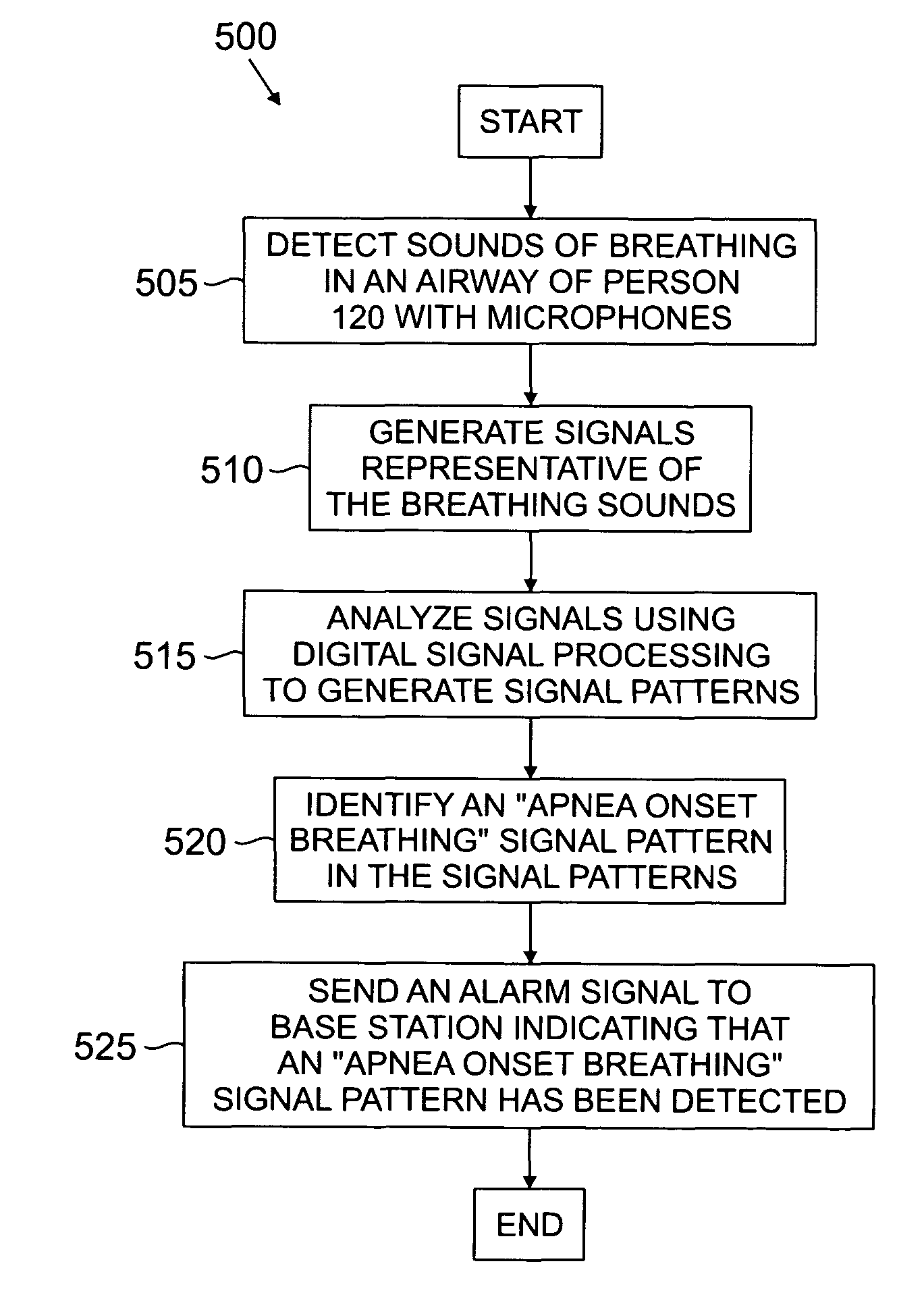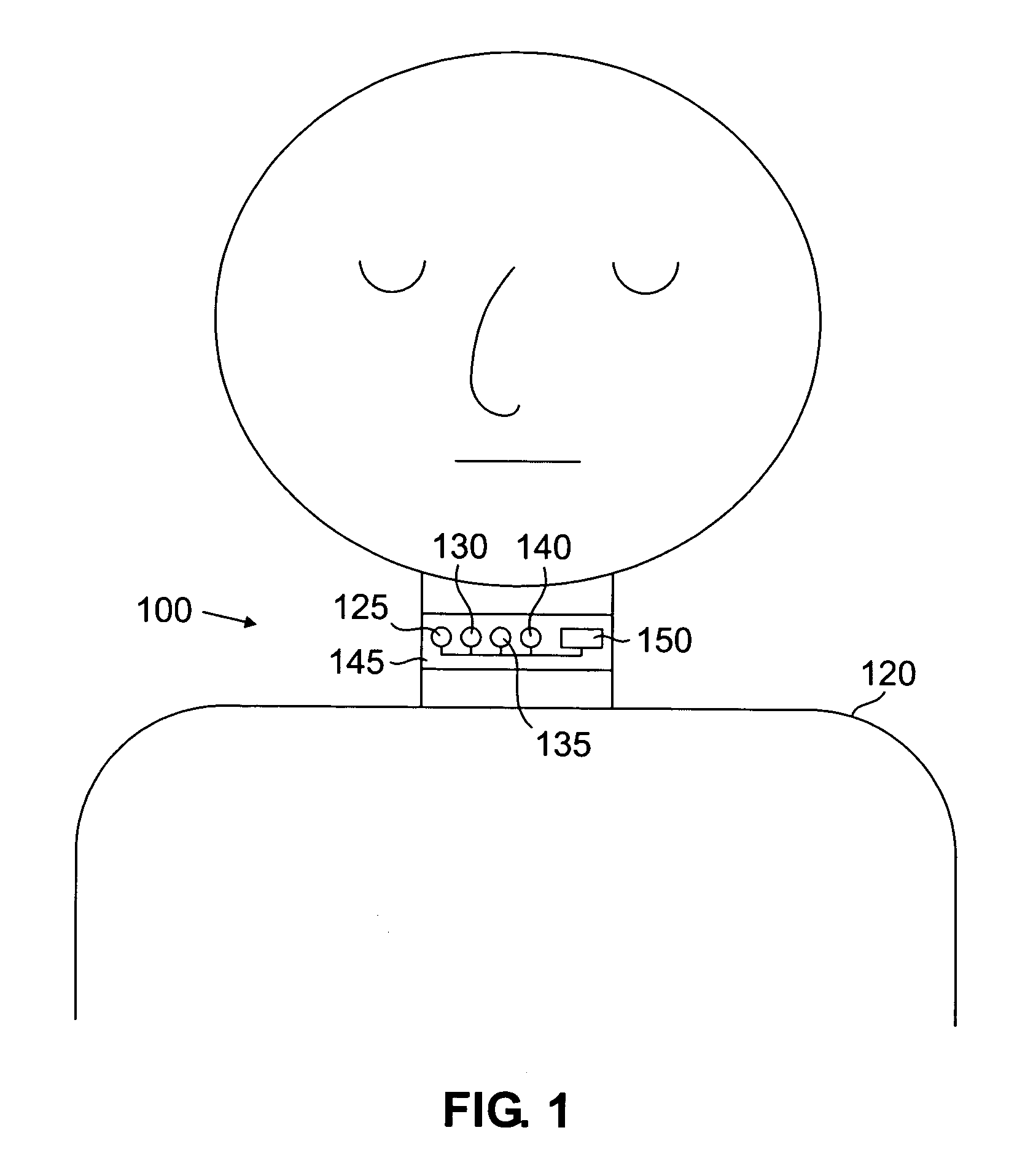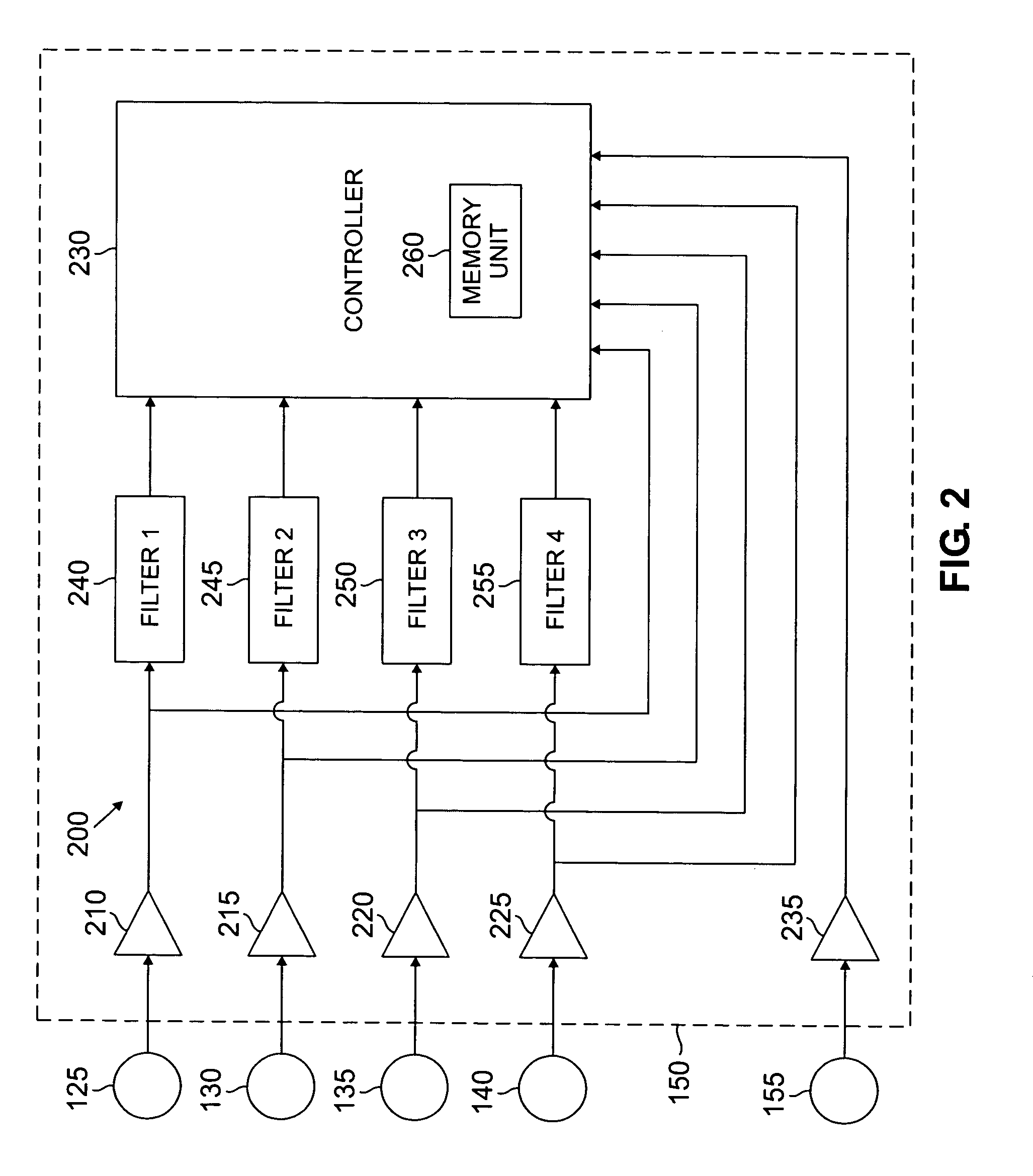System and method for detecting the onset of an obstructive sleep apnea event
a technology of obstructive sleep apnea and detection method, which is applied in the field of system and method for detecting the onset of an obstructive sleep apnea event, can solve the problems of affecting the quality of life of patients,
- Summary
- Abstract
- Description
- Claims
- Application Information
AI Technical Summary
Benefits of technology
Problems solved by technology
Method used
Image
Examples
Embodiment Construction
[0037]FIGS. 1 through 5, discussed below, and the various embodiments used to describe the principles of the present invention in this patent document are by way of illustration only and should not be construed in any way to limit the scope of the invention. Those skilled in the art will understand that the principles of the present invention may be implemented in any suitably modified system for detecting the onset of an obstructive sleep apnea event.
[0038]FIG. 1 illustrates one embodiment of the present invention showing how apparatus 100 of the present invention may be attached to a person 120 who suffers from sleep apnea. Apparatus 100 may comprise either one microphone or a plurality of microphones. The embodiment of the present invention that is illustrated in FIG. 1 has four microphones 125, 130, 135, and 140. It is noted, however, that it is possible to practice the present invention using only one microphone. The embodiment of the present invention that is illustrated in FI...
PUM
 Login to View More
Login to View More Abstract
Description
Claims
Application Information
 Login to View More
Login to View More - R&D Engineer
- R&D Manager
- IP Professional
- Industry Leading Data Capabilities
- Powerful AI technology
- Patent DNA Extraction
Browse by: Latest US Patents, China's latest patents, Technical Efficacy Thesaurus, Application Domain, Technology Topic, Popular Technical Reports.
© 2024 PatSnap. All rights reserved.Legal|Privacy policy|Modern Slavery Act Transparency Statement|Sitemap|About US| Contact US: help@patsnap.com










